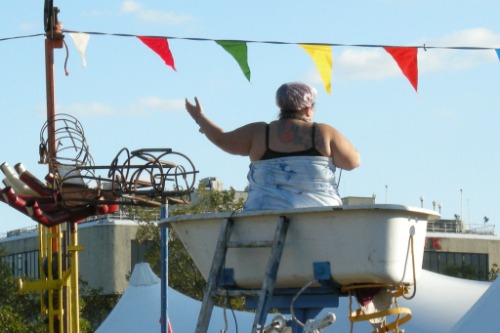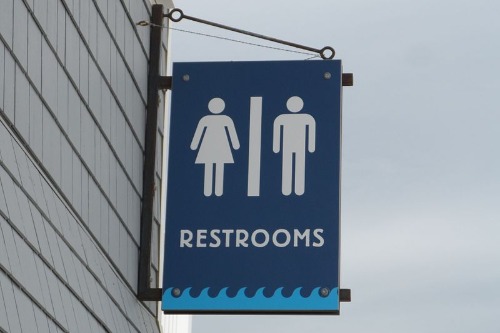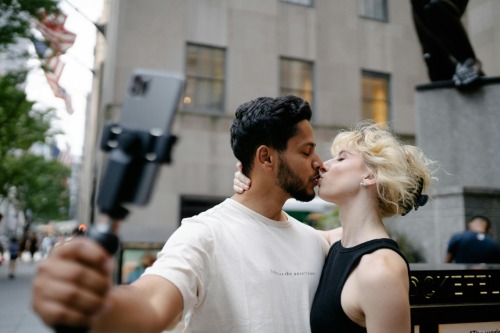1. Pennsylvania: No Singing in the Bathtub

In Pennsylvania, you might want to think twice before belting out your favorite tunes in the bathtub. It is technically illegal to sing while bathing, though there’s no real enforcement of this odd rule. This law most likely dates back to concerns over public safety, particularly the risk of slipping or ingesting water while distracted by a melody. Such a law was likely created in a time when hygiene and public safety concerns were less developed, and it would have been more common for people to bathe in a more communal or less carefully supervised setting.
Today, this law is more of a humorous relic from the past that most people don’t even know exists. While no one is likely to face legal consequences for singing in their own bathroom, it is a quirky reminder of the sometimes strange lengths to which local governments would go to regulate public behavior. Imagine the absurdity of a fine being issued for the crime of enjoying music in the privacy of your own home.
2. Forgetting to Tie Your Dog to a Leash in Arkansas

In Arkansas, it’s actually illegal to let your dog roam off-leash in public spaces, and if your dog harms someone while it’s loose, they can take it from you. While this might seem like an overreach, it’s enforced more than you’d think. So, if you’ve ever let your dog off-leash to explore a park or a trail, you could be unknowingly breaking the law. Even the best-behaved dog could land you in trouble if they’re caught running free.
The law is in place to protect both people and animals from harm, ensuring that pets don’t run into traffic or cause accidents. Although it might seem like a minor thing, letting your dog roam free could result in fines or, in some cases, animal control intervention. If you’re in Arkansas or other states with similar laws, always keep your dog on a leash when out in public. It’s better to avoid the hassle and keep your furry friend safe.
3. Alabama: No Dominoes on Sundays

In Alabama, playing dominoes on Sundays is officially illegal, a rule rooted in religious and cultural traditions. This regulation most likely originated as part of the broader set of “blue laws” designed to promote rest and discourage leisure activities that could disturb the peace on the Sabbath. While the precise origin of this law is unclear, it was likely enacted to keep Sunday a day of worship and reflection, without the distraction of games or parties that could lead to noise or unruly behavior.
While it is highly unlikely that anyone would be prosecuted for playing dominoes today, this rule remains on the books as a quirky reminder of how societal norms have evolved. The notion that such a minor, casual activity could be banned due to religious observance speaks to how much influence religion once had over public policy. For those in Alabama, it’s wise to make sure your domino games are scheduled on any other day of the week—lest you risk an absurd encounter with the law.
4. It’s Illegal to Paint a Ladder in New Jersey

If you’re ever in New Jersey, avoid painting your ladder. This odd law prohibits the practice, which was originally put in place for safety reasons. The idea behind it is to ensure that ladders remain clearly visible and to reduce accidents. A painted ladder could make it harder to identify cracks or weak spots, leading to potential hazards, which is why the law exists.
Though it seems strange, it’s meant to protect people who use ladders for both work and home improvement. The law ensures that ladders are kept in their natural state, so no one risks injury by using a poorly maintained ladder. While it may sound like something out of a funny old-timey rulebook, it’s a surprisingly practical one. So, keep your ladder plain and avoid any trouble!
5. It’s Illegal to Pee in Public in Oregon

In Oregon, you could be arrested for urinating in public, even in nature. Though it’s something people often do when hiking or camping, this state has some strict laws regarding public indecency. If you’re caught without a bathroom in sight, you could face hefty fines or even jail time. So, be extra cautious about where you relieve yourself if you’re traveling in Oregon.
The law aims to protect the public from lewd behavior and maintain community decency. It’s one of those things most people don’t think about unless they’re caught in an unfortunate situation. Oregon’s law encourages people to find proper facilities when nature calls. Whether you’re in the woods or near a city, always keep an eye out for restroom signs.
6. New York: No ‘Dangerous’ Dances Without a License

In New York, some dances are so “dangerous” that you need a license to perform them in public. This law dates back to the Prohibition era when officials sought to regulate the behavior of people at underground speakeasies. Many establishments during that time were flouting alcohol-related laws, and authorities were looking for any reason to crack down on rowdy gatherings. As a result, dancing—specifically dances deemed too raucous or “indecent”—was regulated.
While the law is a product of a bygone era, it remains on the books, even if its enforcement has long since faded into history. Today, the law sounds almost comical. The idea that a “dangerous” waltz or a “reckless” foxtrot could get you arrested is hard to fathom in today’s world. But this law is an enduring reminder of how societal norms and legal systems can become entangled, creating bizarre regulations that outlive their original intentions.
7. You Can’t Ride an Unmanned Horse in Colorado

In Colorado, it’s illegal to ride a horse unless you’re actually on it. The law prohibits people from allowing horses to run wild while someone trails behind them or rides without holding the reins. While this might sound like a strange rule from the old Wild West, it’s still enforced in some rural areas. The law’s purpose is safety, ensuring that people aren’t endangering themselves or others while riding horses.
While most people don’t plan on riding a horse in an unsafe manner, this law has remained because of its historical roots. In the past, runaway horses were a significant safety concern, particularly in the high-altitude regions of Colorado. If you’re planning a horseback ride in the state, remember to stay firmly in the saddle. It’s a quirky law that you definitely won’t want to break!
8. No Whistling After Dark in Arkansas

If you’re in Arkansas, you might want to refrain from whistling after dark—because it’s illegal. This odd law comes from a time when whistling was associated with signaling thieves or other unsavory characters. It’s one of those strange laws that no one really remembers the origins of, but it still stands today. The law was intended to prevent nighttime disturbances, especially in more rural areas.
Though it’s not actively enforced, the law remains as a reminder of how much societal norms and fears have shifted. Whistling in the dark could be seen as signaling something bad was going to happen, making it a source of concern. While it’s unlikely you’ll get into trouble for this, it’s a fun fact to pull out when talking about bizarre laws. Just try to avoid whistling if you’re in Arkansas after dark—just in case!
9. No Fortune-Telling Without a License in Nevada

In Nevada, it’s illegal to practice fortune-telling or provide psychic readings without a license. While Las Vegas is known for its mystique and showbiz, it has strict regulations around this particular industry. Without proper certification, a so-called psychic could face a fine or even jail time. The law exists to ensure that the fortune-telling business is regulated and that people aren’t scammed by false predictions.
Although you might see tarot card readers or psychics on every corner in Vegas, they’re all supposed to be licensed. The law exists to protect people from fraud, especially when money is involved in these kinds of services. Whether you’re seeking spiritual guidance or simply curious, be aware of the local rules around fortune-telling. Just make sure the person you’re seeing has the necessary permits before you hand over any money.
10. Iowa: Mustaches Are Illegal During Public Kisses

In Ottumwa, Iowa, there is an old law that prohibits men with mustaches from kissing women in public. While it might sound like a bizarre and outdated rule, it was likely a reactionary law based on cultural or hygiene concerns from the past. At the time the law was created, mustaches were often associated with unkempt appearances, and public displays of affection were viewed with much more scrutiny.
Though the law is no longer enforced, it serves as an odd reminder of how societal standards and fashion once influenced public behavior. The notion that something as trivial as a facial hair style could restrict personal freedom shows how cultural norms can shape legal systems. Thankfully, today, Ottumwa’s residents are free to kiss whomever they like, regardless of their mustache status.
11. No Fish Shopping in Utah

In Utah, it’s against the law to fish for certain types of fish unless you have a license for them. While this is standard in many states, Utah has incredibly specific rules about which fish you can catch and where. You could easily break this law without realizing it if you’re fishing in the wrong spot or targeting an unlicensed species. Whether you’re an amateur angler or an experienced fisherman, be sure to research the state’s specific fishing regulations.
The law is in place to protect local wildlife and ensure that overfishing doesn’t occur. Many regions have been under close scrutiny to prevent species from becoming endangered. It’s essential to be informed about what’s allowed in each state, especially when it comes to fishing. A fishing license is more than just a formality—it’s necessary to keep both the environment and your wallet safe from fines.
12. Hawaii: No Coins in Your Ears

In Hawaii, there is an unusual law that prohibits placing coins in your ears. The origin of this rule comes from a time when street performers were known to engage in magic tricks, often using sleight of hand to deceive audiences into thinking they could pull coins from behind people’s ears. This trick became so common that the state decided to outlaw it in an effort to prevent deception, particularly in tourist-heavy areas.
While the law may seem absurd today, it’s a reminder of how states sometimes enact laws to protect consumers from trickery or deceit. It may also reflect the importance that Hawaiians place on public honesty and fairness, especially in their interactions with outsiders. So, while you may not see many magicians working the streets of Honolulu today, the law stands as a quirky piece of the state’s legal history.
13. No Singing Happy Birthday in a Restaurant in Georgia

In Georgia, you might be breaking the law if you sing “Happy Birthday” at a restaurant. This rule comes from the fact that the song is copyrighted, and public performances of it require permission or a license. While it seems silly, this copyright law can mean trouble for anyone who breaks it. If you’re planning to celebrate a birthday in Georgia, opt for a quieter, more personal song.
Though it seems like an unusual and outdated rule, it still applies because of the way intellectual property laws are structured. The song is copyrighted, so singing it in public without a license could technically result in fines. It’s just one more quirky law you might unknowingly break while trying to celebrate with friends or family. Consider this a good reason to get creative with your birthday tunes!
14. No Fake Mustaches in Alabama

Alabama has a surprisingly quirky law that prohibits people from wearing fake mustaches in church if they intend to cause a disturbance. This law was put in place to preserve the dignity of religious services and ensure that people were not acting disrespectfully. It’s not often enforced, but the idea behind it is that wearing a fake mustache might distract others during worship. It’s one of those bizarre laws that just doesn’t seem to have an obvious application today.
While the law is likely a remnant from a different time, it still exists in the books as a reminder to act respectfully in places of worship. In a modern world, the law is rarely cited but serves as an amusing example of over-regulation. If you’re attending a service in Alabama, you might want to leave the fake mustaches at home just in case. A little respect for the rules never hurt anyone, especially when it comes to avoiding quirky legal trouble!


